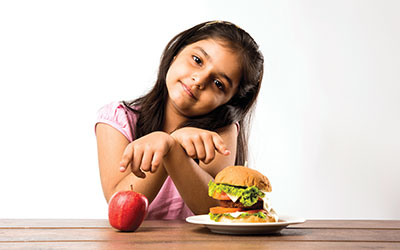 My five-year-old son wets his bed almost daily. When he was 2.5 years old he had stopped bedwetting but since last year, he has started again. Please advise.
My five-year-old son wets his bed almost daily. When he was 2.5 years old he had stopped bedwetting but since last year, he has started again. Please advise.
— Anonymous, Chennai
This is secondary bedwetting i.e, reversion to bedwetting after six dry months. Try out some simple curatives to control bedwetting — limit fluids intake after 7 p.m; ensure your child urinates before bedtime; set an alarm to wake him up for a second toilet visit in the night; include foods with roughage in the diet and give him positive affirmation whenever he is dry.
If bedwetting still persists, there could be other reasons such as an infection or obstruction in the urinary tract, the bladder could have contracted in size (thimble bladder), or it’s a symptom of diabetes or sickle cell disease. Consult a paediatrician for diagnosis and treatment.
Five-six children in my son’s kindergarten are suffering from Hand, Foot and Mouth Disease (HFMD). My son has a mild fever, and I’m worried, unsure whether he has contracted the disease. What are its symptoms and how can I prevent it?
— Mangala Pawan, Bangalore
Hand, Foot and Mouth Disease can spread like an epidemic in schools. As soon as a child contracts HFMD, he will develop a low grade fever which seldom rises above 101°F. The child will be irritable, refusing to eat. Within three-five days, small blisters with a red rash appear around the mouth, hands, feet, buttocks and genital area. There is no itching. The blisters scab over and disappear on their own after five-seven days. The recovery is spontaneous and complete in two weeks. The disease is infectious till the scab stage.
Preventive steps include encouraging children to maintain toilet hygiene, washing hands before meals, and remain hydrated. Also wipe down doors, tables, chairs and toys with antiseptic wipes.
My son returns after school very hungry. I also return from office the same time and am too tired to make fresh food/snacks. So he ends up eating biscuits and drinking packaged juice. I try to balance this junk food intake by giving him fruit on some days. My sister insists that my son is likely to develop diabetes because of his junk food diet. My son is very physically active. Please advise.
— Ridhima Sen, Mumbai
Eating excess refined sugar which is found in packaged foods, confectionery and beverages, causes rapid rise in blood sugar, especially in children with a predisposition to diabetes. Precipitous fall in blood sugar levels may result in lethargy and sleepiness.
Complex carbohydrates such as whole grains, fruits and vegetables contain natural sugar which provides children much-needed energy. Try making simple non-fussy foods such as poha, beaten rice soaked in milk with little sugar and broken wheat upma, in addition to serving dry fruits and fruit. It is worth the extra effort if you want to ensure your child is healthy and physically fit.
(Dr. Gita Mathai is a Vellore-based paediatrician and author of Staying Healthy in Modern India)























